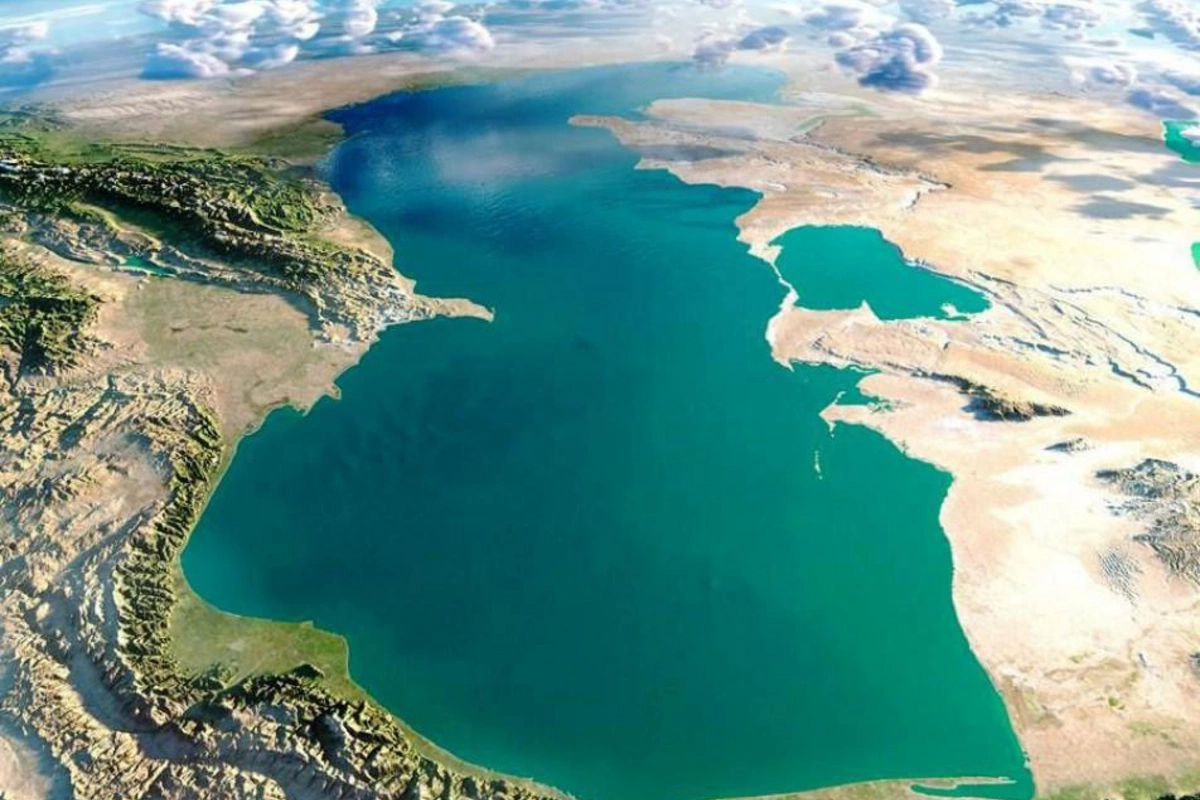
Massive floods and heavy rains that hit parts of northern Kazakhstan and southern Russia during the spring caused a huge surplus of water, some of which was redirected into channels and canals that lead to the river and the sea. The inflow is good news for the Caspian Sea, which scientists say is shrinking year by year.
Photo credit: www.entralasiaprogram.org
Kazakhstan has dispatched an unprecedented 16.7 cubic kilometres of water to the Caspian Sea via the Zhaiyk River in the year to date, compared to the long-term annual average of 9.46 cubic kilometres, according to the country's Ministry of Water Resources and Irrigation, The Caspian Post reports citing foreign media.
Massive floods and heavy rains that hit parts of northern Kazakhstan and southern Russia during the spring caused a huge surplus of water, some of which was redirected into channels and canals that lead to the river and the sea. The inflow is good news for the Caspian Sea, which scientists say is shrinking year by year.
The Zhaiyk River flow is largely determined by water released from the Iriklinsky reservoir in Russia.
The Caspian Sea is shared by Kazakhstan, Russia, Turkmenistan, Azerbaijan and Iran.
Kazakhstan has also reported that its largest lake, Lake Balkhash, has this year so far been boosted by inflows amounting to 13.5 cubic kilometres of water.
“Since the beginning of the year, representatives of the ministry have held 28 meetings with colleagues from Russia, China and Central Asian countries on transboundary rivers. Negotiations on regulation of water volumes during the flood period will be conducted in an intensified mode,” said Moldir Abdualieva, the ministry’s official representative.
This year has brought many reports on the realisation that the Caspian Sea is shrinking at an alarming rate.
Think Landscape on November 4, cautioned that, “Next week [from November 11), when world leaders gather in the Azerbaijani capital, Baku, for the 2024 UN Climate Change Conference (COP29), they’ll find themselves next door to an ecological disaster in the making.
“Baku lies on the shores of the Caspian Sea, which, despite its name, is actually an inland water body often described as the world’s largest lake – for now. The Caspian Sea is shrinking due to many of the same issues facing the entire planet: the climate crisis, excessive water use for agriculture, and pollution from nuclear waste, industry and poor urban planning.”
The journal noted that the Caspian Sea was currently about 29 metres below sea level and falling steadily by seven centimetres each year.
Satellite imagery has enabled scientists to track a disturbing growth of arid land in bays and along coastlines of the five countries that surround the sea.
Share on social media